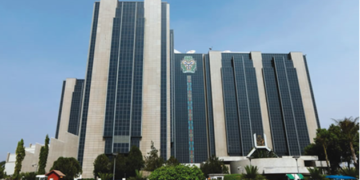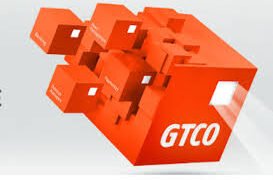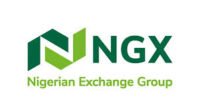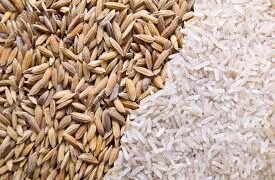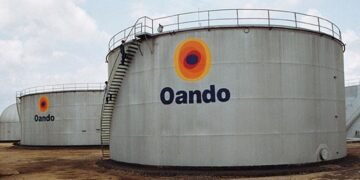In the last article we introduced investing in the Nigerian Financial Market. Today’s article will focus on how to invest in fixed income assets with practical examples.
Bonds
Corporate/government bonds are fixed income debt instruments/securities issued in order to raise funds/money from investors.
When an investor buys a bond, he/she becomes a bond holder while the firm/government that he bought it from becomes the bond issuer. When you buy FGN Bonds, you are lending to the FGN for a specified period of time
Bond is a promise from the issuer to the bond holder, that the bond holder will receive a periodic payment of interest (coupon payments) plus the principal (face value or par value) of the bond at maturity.
A bond is a long term debt instrument usually with more than 1 year maturity. It can be 2 years, 3 years, 10 years and so on or even perpetual (perpetual bonds has no maturity date. The bond holder receives interest periodically in perpetuity).
Nigerian government issues different kinds of bonds, FGN Savings bonds, FGN bond, Sukuk bond. Bonds are backed by the full faith of the Federal Government of Nigeria so there is very low risk of default. However, there is risk of losing value due to inflation & liquidity.
FGN Savings Bond
It has duration of 2years and 3years respectively and the interest ranges between 10% – 13% and is basically determined by the debt management office (DMO).
The interest payments is quarterly meaning the annual interest is divided into four and paid every 3 months. This is ideal if you have large amount of funds so that the interest you get every 3 months is reasonable. The capital is paid back to you at maturity.
Units of Sale: N1,000 per unit subject to a minimum Subscription of N5,000 and in multiples of N1,000 thereafter, subject to a maximum subscription of N50,000,000
FGN Bonds
These it is similar to the above described with respect to the issuer. The difference is in tenor and minimum amount one can invest and interest payment.
Interests are determined by the DMO and are paid semi-annually – that is every 6 months. The capital is paid back to you at the end of maturity. The interest rate ranges from 9 – 13% depending on the tenor.
Units of sale: N1,000 per unit subject to a minimum subscription of N50,001,000 and in multiples of N1,000 thereafter. To view the last FGN bond issued in May click here.
Sukuk bonds
These are bonds that are issued in compliance with Sharia law. The rental rate of the last Sukuk bond issued was 11.2% per annum.
Units of sale: N1,000 per unit subject to a minimum Subscription of N10,000 and in multiples of N1,000 thereafter.
For example;
If you buy a 5-year bond at N100,000 face value, and interest rate of 12.5%. Every year you will be paid N12,500 as interest for 5 years.
This means that at the end of 5 years you will be paid a total of N62,500 as interest plus your capital; N100,000. So, you have total of total of N162,500. Recall that, the interest is paid periodically usually quarterly, biannual specified when the bond was issued.
For the example above, if the payment is quarterly, you will receive 3,125 naira (i.e 12500 ÷ 4) every quarter (4 months). But if the payment is biannual, you will receive 6,250 naira every six months.
In Nigeria, government bonds are issued in the primary market by the Debt Management Office (DMO) on 3rd or 4th Wednesday of each month.
Bonds are backed by the full faith of the Federal Government of Nigeria so there is a low risk of default. However, there is a risk losing value due to inflation & liquidity.
Bond issue is announced on the DMO website
The announcement circular bears the following information:
- The amount government is willing to raise
- Different maturity periods with corresponding interest rates
- How the interest will be paid – quarterly, bi-annual or annually
- Minimum investment – minimum as stipulated by DMO, however this figure usually differ for dealing members ( banks, investment companies, stockbrokers)
- Issuer
- Redemption (when the principal will be repaid)
- Auction date and settlement date.
Benefits of bond investment
- It is guaranteed by FGN (little or no default risk)
- It provides fixed source of income
- Income from bond is tax exempt (no tax is paid)
- Protects investors from changes in interest rate
- Investors can resell their bonds before maturity in the secondary market if he/she is in need of cash.
When is Bonds Issued?
The DMO conduct Monthly Auction on behalf of the Federal Government of Nigeria and the notice is placed in National Dailies and the DMO Website, 7 days prior to the date.
Quarterly FGN Bond Issuance Calendar is on the DMO Website. You can also consult your financial advisers for more information.
How do I buy FGN Bonds?
Primary Debt Market: FGN Bonds Auctions Exercise is carried out by the DMO on a monthly basis. Primary Dealer Market Makers (PDMMs) empaneled by the DMO in 2006 are responsible for submitting bids for themselves and on behalf of their clients at the Auctions. PDMMs are banks appointed by the DMO to act as authorized dealers in FGN bonds
Secondary Debt Market: Trading in FGN Bond is done on a daily basis in the Secondary debt market by licensed broker-dealers (banks and stockbrokers) on the floor of The Nigeria Securities Exchange (NSE) and on FMDQ OTC Securities Exchange. The PDMMs are obligated to provide a two-way quote for FGN Bonds. This means that you can buy or sell your FGN Bonds whenever the need arises. Click here for more information on bonds.
Another type of fixed income asset is Treasury bills
Treasury Bill (TB) is a short term debt instrument issued by the Federal government, through CBN (Central Bank of Nigeria). The maturity is usually less than 1 year.
TB is used to finance Federal government budget deficit. It is guaranteed by the full faith of the Federal Government of Nigeria. It is regarded as a risk-free asset because there is no risk of default from the government – worst case scenario if the government cannot pay, CBN can print money to pay investors.
TB is sold both in the primary and secondary market.
In the primary market (direct from the government) it has 3 maturity dates – 91 days, 182 days and 364 days – each of these maturity dates has its own interest rates. Usually the higher the maturity the higher the interest rate.
You can buy TB from the primary market with a minimum of 50,000,000 naira. CBN auctions TB every fortnight (every two weeks) though sometimes the interval changes.
However, you can purchase TB from the secondary market through registered dealers (banks, stockbrokers, investment companies).
The minimum amount, interest rates, and maturity period in the secondary market depends on the dealer. It differs from dealer to dealer.
Note that the interest rate in the primary market is usually higher than that in the secondary market because the dealers buy from the primary market and then resell in the secondary market.
Take for example;
If you invest 500,000 on a 90 days, 10% rate Treasury bills (note the rate is an annual rate), your annual interest = 500,000 × 0.1 = 50,000 naira.
Daily interest = 50,000 ÷ 365 = 136.986 naira per day (365 is the number of days in a year)
Interest for 90 days = 136.986 × 90 = 12,328.77 naira.
So you will receive 12,328.77 naira on the day of your investment and at the end of the 90 days you will receive the face value of 500,000 naira. Here the interest is paid upfront. However sometimes, it can be back end – you receive both interest and face value at maturity.
TB rates and tenor for the secondary changes on daily basis depending on rates and tenor that is available and it differs for different dealers – banks, assets management companies, investment companies.
Rates is the interest rate you will get on your investment. Tenor is the number of days your investment will stay before maturity. Maturity is the date you will get back the money you invested.
Benefits of investing in TB
- Risk free investment
- Tax exempt on the interest earned (no tax is paid on the interest)
- Provides a good source of steady income.
- You can use TB certificate as collateral for bank loans.
- It is a highly liquid asset – it can easily be sold but a cost.
- You don’t need too much capital to start. You can start with as low as 100,000 naira.
There were reports that Central Bank of Nigeria in November 2019 barred individuals and small businesses from investing in Treasury Bills.
Commercial papers (CP)
These are unsecured short term instrument/security used by corporations to raise funds from the public. CP has a minimum maturity of 15 days and maximum maturity of 270 days.
The purpose of issuing CP is for the firm to meet its short term finance obligations. It is similar to Treasury bills in the sense that the investment can be upfront ( you receive your interest on the day of investment and face value at maturity) or back end ( you receive both interest and face value on the day of maturity).
CPs are traded both in the primary and secondary markets. For the primary market the minimum investment is 5 million naira while in the secondary market the minimum is usually 100 million naira because it is traded in bulk quantities.
Though there are no standard lot sizes, secondary market sellers prefer to sell in large quantities. Thus it is easier to buy CP from the primary market.
The interest calculation is the same method as that of Treasury bill.
CPs are usually issued by firms with good financial performance and good credit rating in Nigeria. However, the risk of default (credit risk) is not eliminated.
So it is important that an investor do his due diligence (gather all necessary information including the credit rating of the company before investing).
The interest a firm pays on a CP depends on the firms credit rating which determines the level of risk involved in investing in the company. The higher the risk involved the higher the return (This is called risk – return trade off).
CPs usually have a higher interest rate than TB (risk free asset) because CPs are more risky.
Thus investors has the opportunity to purchase higher yielding assets than TB if he/she is willing to take a calculated risk.
You can purchase CP through your bank, stockbroker or investment company.
Benefits of investing in Commercial papers
- The income from CP is tax exempt
- The certificate can be used as a collateral for securing loans.
- It is a good source of fixed income.
Written by;
Ifunanya Ikueze











